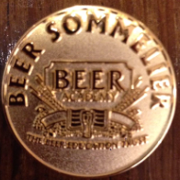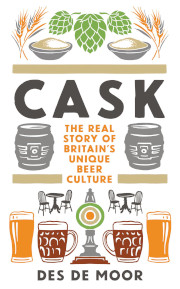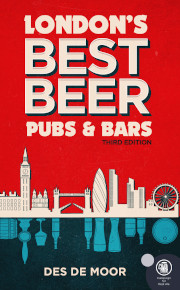Top Tastings 2011 (Ambrée), Beer sellers: Abbaye des Saveurs
ABV: 6.5%
Origin: Bavay, Nord, France

Theillier La Bavaisienne (Ambrée)
Northern French bières de garde are generally assumed to have deep historic roots in the local tradition of farmhouse brewing, though today’s best known and best selling brands are of more recent origin than you might expect. They’re revivalist beers developed in the 1970s (Jenlain) and 1980s (Choulette, Ch’ti, Trois Monts) by old established independent brewers who rightly decided that distinctive but accessible regional specialities might form the basis of a better survival plan than attempting to compete head-on with the lager giants.
Theillier, in the village of Bavay, an important capital in Roman times, is a little different. This small farmhouse-based operation is the oldest surviving brewery in the region and has stuck to making the same traditional styles throughout. Michel Theillier, in post since 1978, is the seventh generation of an unbroken family line that’s run the business since 1835, with production only halted once during that period, when the occupying Germans requisitioned the brewing vessels during World War I. Undoubtedly the recipes have evolved during that time, and today’s flagship Bavaisienne beers emerged in their current form in the 1980s too, but they can lay considerable claim to authenticity.
Most of the 1,000hl of annual production is sold locally but a small proportion is exported to the USA. I’ve never seen them in the UK, so I pounced when I found 250ml bottles of them on the shelves of the Abbaye des Saveurs in Lille. There are two Bavaisienne beers, the original amber and a blond, also available in 750ml bottles and only distinguishable by the label colours – blue and red respectively.
Both are brewed from pilsner malt and some coloured malt for the ambrée – some of the barley is grown locally but the historic decline of brewing in the region has largely stripped it of malting capacity so like most of its neighbouring breweries Theillier uses barley malted over the border in Belgium. Hops are Brewers Gold from Germany and yeast is obtained from Duyck, brewers of the Jenlain beers. These warm fermented beers undergo a traditional cold maturation period of a least a month at -1°C before being chill filtered but not pasteurised.
The blond was a splendid beer that poured golden with a fine white head and a richly malty, slightly lagery Germanic hop aroma. The crisp but full palate had a firm cereal character with a fine note of fruit, firm nuttiness, pleasant sweetness and a touch of slightly citric hops. The gently drying but still sweet finish became very nutty with a slightly warming note and a delicious natural grainy quality. Overall it was a well-muscled and quite straightforward beer but with a certain elegance.
The amber I found better still. It poured a classic amber with a little light beige head and a rather retiring slightly spicy aroma with nuts and cinder toffee. Like the blond the palate was firm and sweetish, with an emerging oozy lusciousness and plenty of malt character – biscuits, peanuts, even a touch of smoke. Gentle, almost medicinal spruce-like hints emerged before a nutty, coating and very satisfying finish with a light but building note of hops.
Again a straightforward beer but characterful, flawlessly made and a real taste of tradition.
I drew on the following book for some background details:
Gabriel Thierry 2010, Sur la route des bières du Nord-Pas-de-Calais, Bouvignies: Nord Avril





Leave a Reply